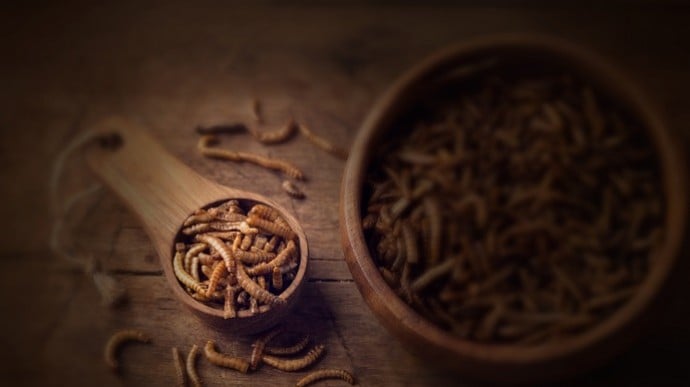Prof Namrita Lall of the Department of Plant Science in the Faculty of Natural and Agricultural Sciences at the University of Pretoria (UP), is bringing science and traditional knowledge together and making it accessible to the modern market by tapping into South Africa's diverse pool of plant life and making it available for medicinal and cosmeceutical use.
An estimated 20 000 plant species are used medicinally today and a number of ingredients commonly used in modern medicine to treat serious diseases, originate from plant-based traditional medicine. Despite the fact that it constitutes only 2% of the world's land surface, South Africa is one of only 17 countries worldwide that is considered mega-diverse in terms of its plant life, which comprises more than 25 000 different indigenous plant species, or about 10% of all the known plant species on Earth, thus making it a prime location for research in this field.
Prof Lall has been studying medicinal plants for more than 20 years, using science to prove their efficacy, and has thereby validated traditional knowledge. Although the process of testing plants for beneficial properties is often delayed by a lack of resources and time, she has successfully completed the process for a number of plants that are now ready for commercialisation.
Prof Lall explains that plants are selected in two ways, namely through ethno-botanical selection or phytochemistry. In the ethno-botanical approach, plants used by indigenous communities for traditional purposes – for instance, for food and medicine – are tested to see if they have medicinal value, while the phytochemistry approach involves the use of existing knowledge about the chemical substances found in specific plants. If a plant is rich in a specific chemical compound that could be of medicinal or cosmeceutical use, it is isolated and trials are run to determine its usability.
Over the years Prof Lall has discovered a number of plants that can be used for the effective treatment of skin conditions, ranging from pigmentation abnormalities and wrinkles to acne, and is waiting for their permits to be finalised before they can be commercialised.
As part of a flagship project identified by the Department of Science and Technology as a result of Prof Lall’s work, she is currently involved in a project in Mamelodi where together with postgraduate students from UP, she is helping farmers to cultivate plants that can be used for medicinal purposes.
It is very exciting to think about the potential of Prof Lall's work. Her outstanding research findings will be beneficial on a number of levels, from the growing link between academia and industry, to enriching the lives of rural communities and improving the well-being of the people who use these products.
See related photos in gallery on the right sidebar.
Prof Namrita Lall of the Department of Plant Science in the Faculty of Natural and Agricultural Sciences at the University of Pretoria (UP), is bringing science and traditional knowledge together and making it accessible to the modern market by tapping into South Africa's diverse pool of plant life and making it available for medicinal and cosmeceutical use. Prof Lall is one of only a few UP researchers to have a product available on the commercial market.
An estimated 20 000 plant species are used medicinally today and a number of the ingredients used in modern medicine to treat serious diseases originate from plant-based traditional medicine. Despite the fact that it constitutes only 2% of the world's land surface, South Africa is one of only 17 countries worldwide that is considered mega-diverse in terms of its plant life, with more than 25 000 different indigenous plant species, or about 10% of all the known plant species on Earth. South Africa is therefore a prime location for Prof Lall's work.
Prof Lall has been studying medicinal plants for more than 20 years, using science to prove their efficacy, and has thereby validated traditional knowledge. Plant-based medicine is in huge demand in Europe, which has encouraged Prof Lall to use her knowledge and research findings to satisfy the demand. Though the process of testing plants for beneficial properties is often delayed by a lack of resources and time, Prof Lall has successfully completed the process for a number of plants that are now ready for commercialisation.
The medicinal plant Ceratonia siliqua, commonly known as the carob tree or St John's bread, is now being used by Carina Franck in one of South Africa's top organic skin-care ranges, Kalahari. Prof Lall has discovered a number of other plants that can be used for the effective treatment of skin conditions, ranging from pigmentation abnormalities and wrinkles to acne, and is waiting for their permits to be finalised before they, too, can be commercialised. Other products developed by Prof Lall include an effective mouthwash for periodontal diseases, as well as chemo-preventative skincare, hepato-protective and immune-modulatory products.
Prof Lall explains that plants are selected in two ways, namely through ethno-botanical selection or through phytochemistry. The ethno-botanical approach is where plants used by indigenous communities for traditional purposes – for instance, for food and medicine – are tested to see if they have medicinal value. ‘The phytochemistry approach is where we use existing knowledge about the chemical substances found in specific plants. If we know a plant is rich in a specific chemical compound that could be of medicinal or cosmeceutical use, we isolate that compound and run trials to determine its usability,' she says.
Through her work, the Department of Science and Technology (DST) has identified a flagship project focussed on using traditional knowledge on plants for pharmaceutical and cosmetic uses. Prof Lall says this is one of the most exciting parts of her work. Not only are students getting degrees, but the research also benefits humankind. ‘I am very interested in community work. For instance, my postgraduate students and I are involved in a project in Mamelodi where we are helping farmers to cultivate plants that can be used for medicinal purposes. In fact, the communities where we work are always involved and will no doubt benefit from the results once some of these projects become economically viable,' she explains.
Working so intimately with traditional knowledge does require delicacy and patience. The process of securing intellectual property rights and other legalities are the main factors that delay commercialisation of a product and getting it onto the market. While Prof Lall has already patented a number of plants, sourcing the community from which the knowledge originated in order for them to benefit can be challenging. After 11 years of trying to get products onto the market, however, Prof Lall is optimistic that now that the process is in place, progress will be faster. She has already received the permits for plants that were selected from UP's own gardens and the resulting products can be used to treat skin pigmentation abnormalities and for chemo-preventative skin-care. Encouragingly, Prof Lall is the first researcher at UP to receive a bioprospecting permit for two types of plant.
It is very exciting to think about the potential of Prof Lall's work. Her outstanding research findings will be beneficial on a number of levels, from the growing link between academia and industry, to enriching the lives of rural communities and improving the well-being of the people who use these products.
In April 2016, the University celebrated Prof Lall's achievements by holding an exhibition to showcase some of the products she helped to develop.
See related photos in the gallery on the right sidebar.
Prof Namrita Lall
May 11, 2016

Professor Namrita Lall has been a researcher at the University of Pretoria (UP) since 1997. She completed her undergraduate studies at Walter Sisulu University, then known as the University of Transkei.
For Prof Lall, UP’s vision aligns with her own: to foster creative and innovative thinking and encourage academic freedom. She maintains that UP has a high standard of integrity, ethics and social justice, with the well-being of both staff and students being of utmost importance. “The University encourages not only academic research, contributing to the scientific body of knowledge, but also research with social impact, providing solutions to problems faced both nationally and for humanity globally,” she says.
UP’s primary goal as an institution of teaching and learning has allowed Prof Lall to impart knowledge to many of her postgraduate students through the University’s abundant access to infrastructure, its multidisciplinary approach to research, its entrepreneurial coaching programmes and its networks in the scientific community.
South Africa is home to about 10% of the world’s higher plant species, with approximately 65% of these being endemic to the country. The field of ethnopharmacology promotes and recognises the impact of indigenous knowledge systems and traditional medicine as important contributors to modern healthcare needs, particularly in a country with such a diverse cultural population. About 80% of the population still relies on traditional medicines as a form of primary healthcare. This field of research plays a particularly important role in drug discovery, and the identification of new drugs with pharmacological activity and commercial potential, not only in the field of healthcare, but also in the field of cosmeceuticals (cosmetic products with added medicinal benefits).
Prof Lall’s field of research contributes to the betterment of the world because it falls within the mandate of the National Biodiversity Act 10 (2004), which incorporates aspects of the global NAGOYA ProtocolBioprospecting, access and benefit-sharing initiatives of the National Biodiversity Act ensure that traditional knowledge holders are acknowledged and remunerated both non-monetarily and monetarily when any indigenous biological resource is commercialised.
Prof Lall holds the National Research Foundation (NRF) and Department of Science and Innovation South African Research Chair’s Initiative (DSI-SARChI) for the development of Plant Health Products from Indigenous Knowledge Systems. She has three main research focus areas:
Prof Lall is the coordinator of the DSI Cosmeceutical Consortium, which focuses on the commercialisation of various indigenous biological resources for cosmetic development, with products for skin diseases such as acne and skin hyperpigmentation, hair loss and eczema. Other aspects of this consortium involve cultivation, harvesting and metabolomic studies to determine the effects of different storage temperatures on chemical composition lead extracts.
In terms of cross-faculty research at UP, Prof Lall has worked with the School of Engineering to develop an optimal formulation for the incorporation of an SPF-boosting active ingredient. She has also worked with the Faculty of Veterinary Science to investigate the mutagenic potential of lead extracts using the Ames test, as well as the antioxidant and anti-inflammatory potential of Kigelia Africana (African sausage tree).
Recent milestones include the following:
“Over the past 18 months, we have been working to identify natural preservatives in indigenous biological resources that can be used in the preservation of cosmeceutical products,” Prof Lall adds.
She says her mother has been a significant inspiration, having nurtured her trust and interest in traditional medicines. In her youth, Prof Lall used alternative plant-based medicines for minor health problems such as indigestion and headaches.
Her academic role model is Prof Chung Ho Lin of the University of Missouri. “He is dynamic and motivates me to strive to uncover my true potential and overcome my weaknesses.”
Prof Lall’s dream is to see all the years of effort and hard work culminate in the commercialisation of the traditional medicines developed by her research team and see these products on the shelves. “I would also like to see more South African and African plants being commercialised nationally by a completely local supply chain – from researchers, manufacturers and formulators to the promotion of indigenous knowledge systems and traditional knowledge holders.”
Her research matters because it has a large impact on many different people:
Prof Lall’s advice to learners or undergraduates with an interest in the phytomedicine field is to talk to senior students, and to approach lecturers and researchers about shadowing or interning opportunities. It is through practical experience and exposure to the field that students will be able to gauge whether they are passionate about a particular career.
Prof Lall says she enjoys cooking and art in her free time.
 Story
Story
Cricket à la king? How about a yellow mealworm burger? Foods that may previously have evoked a ‘yuck’ response are now firmly on the menu. Research into edible insects by the Department of Zoology and Entomology at the University of Pretoria (UP) is exploring how to rear and harvest this food of the future.
 Story
Story
A single query to ChatGPT uses as much electricity as burning a light bulb for about 20 minutes. Multiply that by the millions of requests that this artificial intelligence (AI) chatbot receives each day, and the environmental impact is ominous.
 Story
Story
University of Pretoria (UP) researchers have found that the antioxidant content of certain types of tea can be likened to that found in recommended portions of fruit and vegetables.
Copyright © University of Pretoria 2025. All rights reserved.

Get Social With Us
Download the UP Mobile App